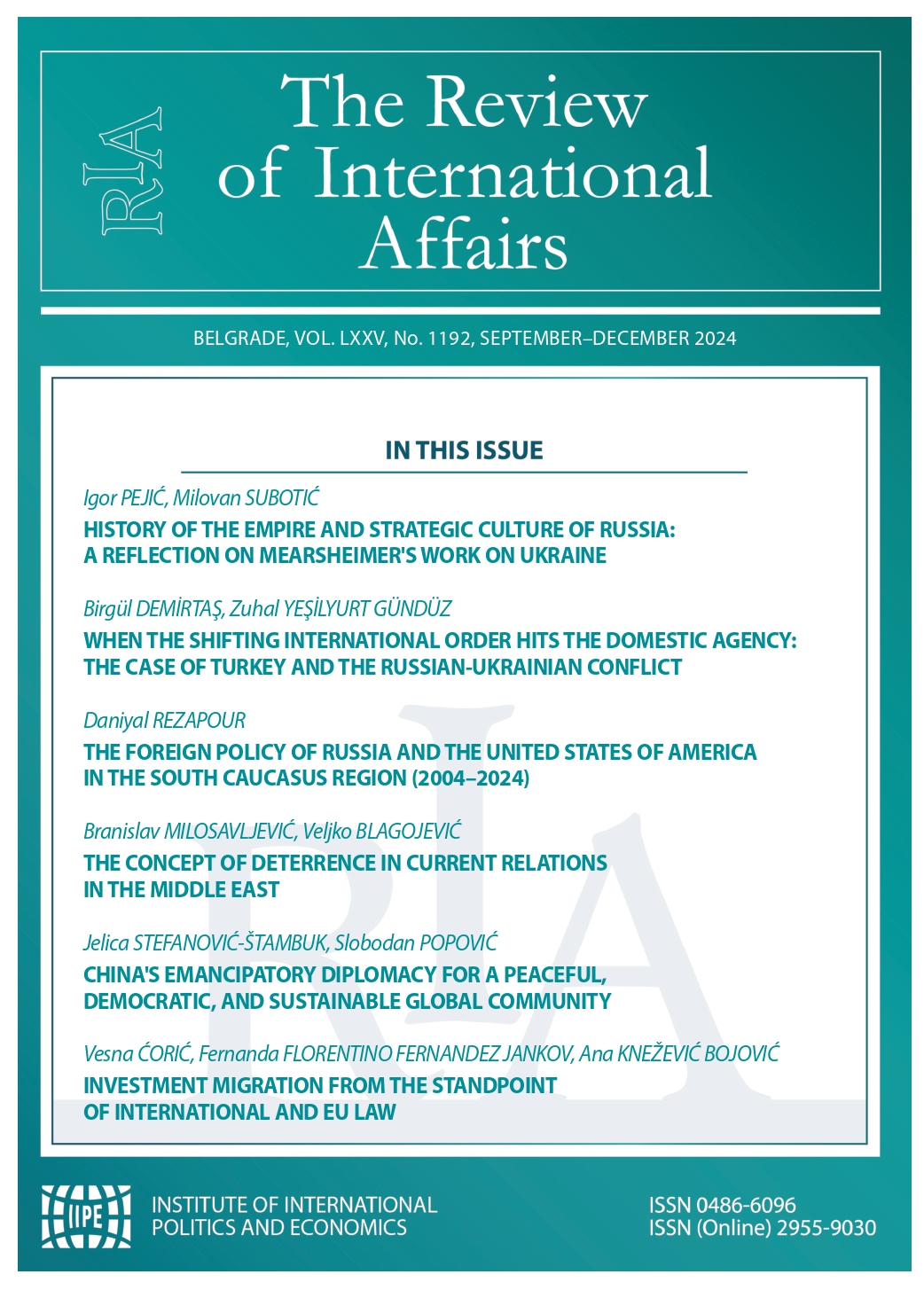The Concept of Deterrence in Current Relations in the Middle East
The Concept of Deterrence in Current Relations in the Middle East
Author(s): Branislav Milosavljević, Veljko BlagojevicSubject(s): International relations/trade, Security and defense, Military policy, Geopolitics
Published by: Институт за међународну политику и привреду
Keywords: deterrence; Middle East; Houthis; foreign policy; international relations.
Summary/Abstract: Deterrence has long been present in international politics, but it became particularly significant during the Cold War due to its role in great power relations. In contemporary relations, it is necessary to adapt old narratives to reflect new and complex realities, as the challenges posed by the modern world complicate the formulation of deterrence strategies. Nevertheless, the goal of deterrence remains to convince the opponent, through various means and methods, that the costs of taking action far outweigh the potential benefits it could achieve. The authors analyse the concept of deterrence using multiple theories in the domain of theoretical considerations, among other things, and its application in the current relations in the Middle East. After discussing the general theoretical viewpoints, the concept of deterrence is analysed further through the case of Israel and Iran and the relationship between the United States and the Houthis, a non-state actor, to elucidate its specifics. Besides historical circumstances, the analysis also examines current events to understand how the most significant actors have applied the concept of deterrence. Recent events between Iran and Israel, particularly in the political and military context, confirm the relevance of the deterrence concept in international relations.
Journal: The Review of International Affairs
- Issue Year: LXXV/2024
- Issue No: 1192
- Page Range: 383-403
- Page Count: 21
- Language: English

